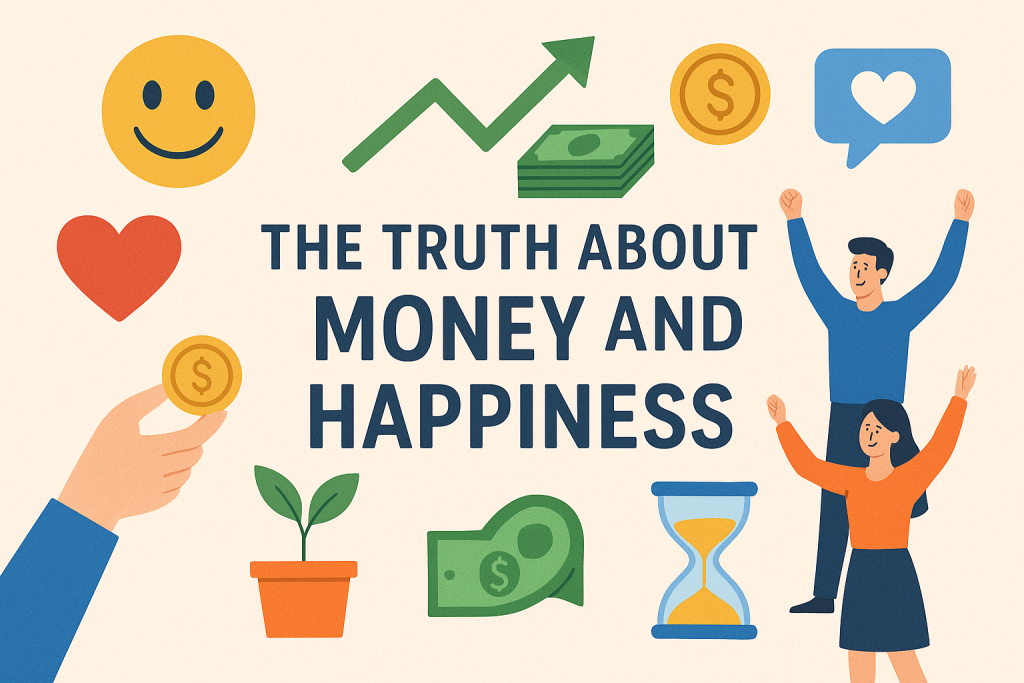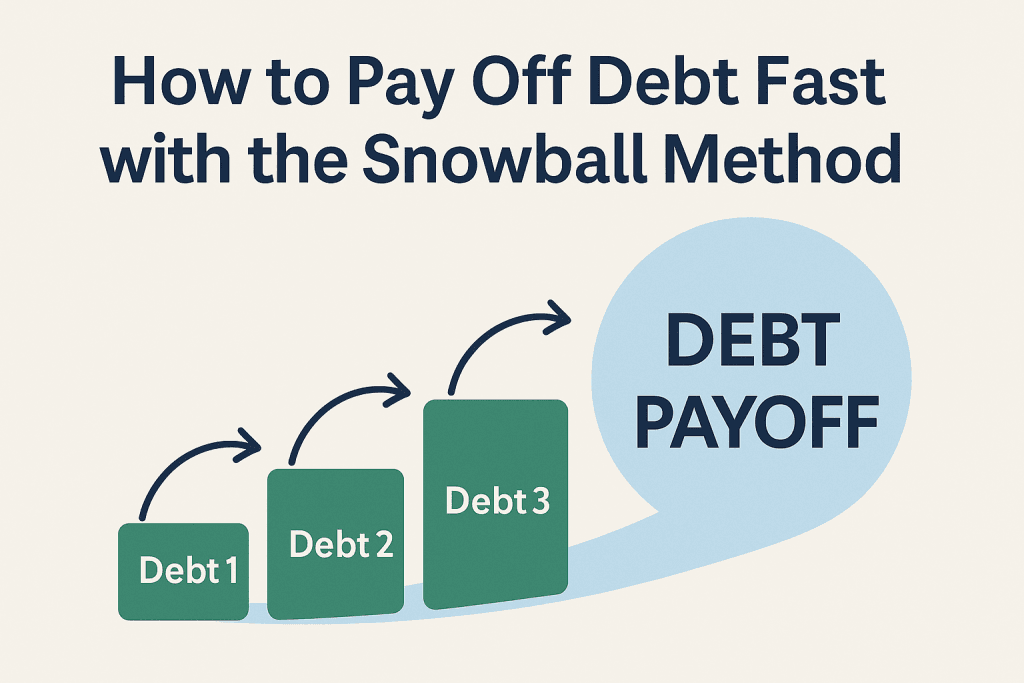The relationship between money and happiness has been one of the most discussed topics in psychology, economics, and philosophy. People often wonder whether financial wealth leads to a happier life or if happiness depends on other factors entirely. In the modern world, where financial success is frequently portrayed as the ultimate goal, understanding the true connection between money and happiness can help people make better choices in their lives.
This article explores the scientific research, cultural perspectives, and psychological factors that influence how money and happiness are linked. We will also examine how personal values, life circumstances, and societal influences shape our perception of what it means to live a fulfilling life.

Understanding the Concept of Money and Happiness
Before diving deeper, it is important to define what we mean by money and happiness. Money is a tangible resource that allows individuals to purchase goods and services, while happiness is a subjective emotional state characterized by feelings of contentment, joy, and life satisfaction.
The complexity of money and happiness lies in the fact that they are not directly proportional. While having enough money can improve quality of life by providing security, comfort, and access to opportunities, it does not guarantee emotional well-being. Many wealthy individuals experience dissatisfaction, while some with modest means live fulfilling and joyful lives.
See more: how to be financially independent in your 30s
Historical Perspectives on Money and Happiness
Throughout history, different cultures have held varied beliefs about money and happiness. In ancient Greece, philosophers like Epicurus suggested that happiness is rooted in simple pleasures, meaningful relationships, and freedom from unnecessary desires. Money was seen as a tool, not the source of happiness.
In contrast, during the Industrial Revolution, financial success became increasingly associated with social status and personal worth. This shift influenced how societies valued money and happiness, linking material prosperity with emotional fulfillment in the public consciousness.
Today, global consumer culture often reinforces the idea that acquiring more money and possessions leads to greater happiness, but research tells a more nuanced story.
The Science Behind Money and Happiness
Numerous studies have attempted to measure the correlation between money and happiness. Psychologists and economists have used surveys, experiments, and long-term data to explore how income levels relate to life satisfaction.
Basic Needs and Security
At lower income levels, an increase in money significantly improves happiness because it helps meet basic needs such as food, housing, healthcare, and safety. Once these essentials are covered, people experience less stress and more stability.Diminishing Returns
After reaching a certain threshold, the positive impact of additional income on happiness starts to diminish. For example, earning more money may provide extra comfort or luxury, but it often has less influence on emotional well-being compared to the jump from poverty to financial stability.Relative Comparison
Human beings naturally compare themselves to others. The effect of money and happiness can be influenced by how a person’s financial status measures up to peers, neighbors, or colleagues. This phenomenon, known as social comparison, can lead to dissatisfaction even among high earners.Spending Habits
How money is spent also matters. Research shows that using money for experiences, acts of generosity, or personal growth tends to increase happiness more than buying material possessions.

Cultural Differences in Money and Happiness
Culture shapes the way people perceive the link between money and happiness. In collectivist societies, happiness often comes from family connections, community bonds, and shared success. Money plays a role, but social harmony is valued more highly.
In individualistic cultures, personal achievement and financial independence are often seen as keys to happiness. People in these societies may place a stronger emphasis on building wealth as a path to personal freedom and self-expression.
Interestingly, studies indicate that cultural values can influence whether people see money as a source of happiness or simply as a means to achieve other life goals.
Psychological Factors Affecting Money and Happiness
The connection between money and happiness is deeply tied to psychological aspects such as gratitude, mindfulness, and personal values.
Gratitude
People who practice gratitude tend to experience more happiness regardless of their financial situation. Appreciating what one already has can reduce the constant desire for more money.Mindset
Individuals with a growth mindset, who focus on learning and personal development, often find happiness in progress rather than just in material gains.Value Alignment
When financial goals align with personal values—such as supporting family, pursuing passions, or contributing to causes—people often find greater fulfillment.Adaptation
Humans are remarkably adaptable. This means that people can get used to changes in income over time, and the initial boost in happiness from more money may fade.
The Role of Work in Money and Happiness
Work is a major source of both money and identity. The type of work a person does, the meaning they derive from it, and the balance between effort and reward all influence money and happiness.
Job Satisfaction
People who enjoy their work often report higher happiness levels regardless of income. Meaningful work provides purpose, which is a crucial component of overall life satisfaction.Work-Life Balance
Earning more money at the cost of personal time can reduce happiness. Achieving a balance between career and personal life is key to maintaining both financial stability and emotional well-being.Income Stability
Consistent and reliable income contributes to a sense of security, which in turn supports happiness.
Spending Money in Ways That Increase Happiness
Research has shown that certain spending habits can enhance the relationship between money and happiness:
Buying Experiences: Travel, hobbies, and events create lasting memories that bring joy over time.
Helping Others: Acts of generosity, such as donating to charity or helping a friend, often increase happiness levels.
Investing in Personal Growth: Spending on education, skills, and self-improvement can lead to long-term fulfillment.
Prioritizing Time Over Money: Choosing activities that save time and reduce stress can improve quality of life.

The Role of Relationships in Money and Happiness
Relationships are one of the most powerful predictors of happiness. While money can create opportunities to spend time with loved ones, it cannot replace emotional connection.
Social Support
Having a network of supportive friends and family improves resilience and overall well-being.Shared Experiences
Spending money to create moments with others can strengthen relationships and increase happiness.Financial Harmony
Couples who communicate openly about finances tend to experience less stress and more harmony, which positively impacts happiness.
Myths About Money and Happiness
Several misconceptions persist about the connection between money and happiness:
Myth 1: More money always means more happiness – Beyond basic needs, this is often untrue.
Myth 2: Money can buy happiness – It can buy comfort and opportunities, but emotional well-being depends on deeper factors.
Myth 3: Wealth eliminates stress – Financial security can reduce certain stresses but may introduce new ones.
Myth 4: Success equals happiness – Professional or financial success alone does not guarantee emotional fulfillment.
How to Balance Money and Happiness
To create a balanced life that includes both financial stability and emotional well-being, consider these strategies:
Define Your Priorities
Identify what truly matters to you and allocate resources accordingly.Avoid Lifestyle Inflation
Resist the urge to increase spending with every income rise.Practice Mindful Spending
Be intentional about how you use money to enhance your quality of life.Focus on Health and Relationships
Invest time and resources in maintaining physical health and strong connections.Seek Meaning Over Materialism
Choose goals and activities that align with your personal values.
Conclusion
The truth about money and happiness is that while money can significantly improve life quality by meeting basic needs and providing comfort, it is not the sole determinant of happiness. Emotional well-being depends on a complex interplay of financial stability, personal values, meaningful relationships, and psychological resilience.
By understanding the nuanced relationship between money and happiness, individuals can make informed decisions about how they earn, spend, and value money. Ultimately, the happiest lives are those where financial resources are used as a tool to support deeper sources of joy and fulfillment.

